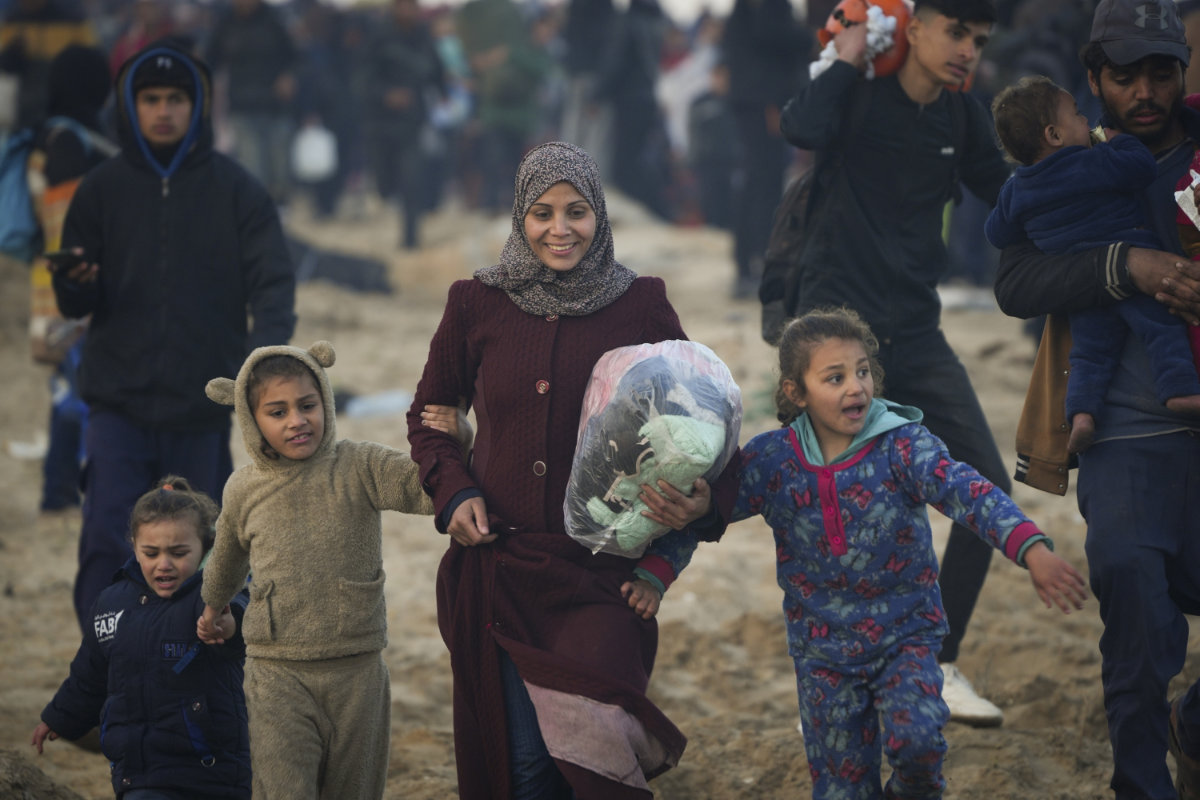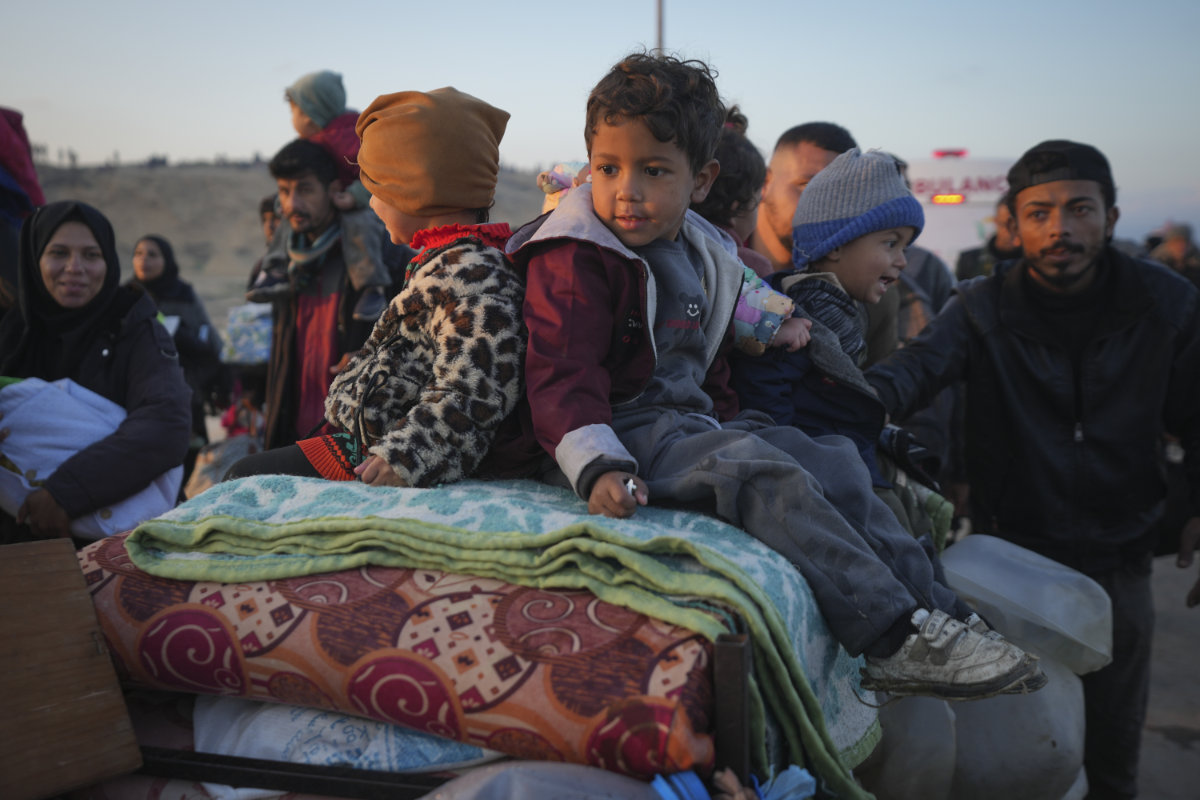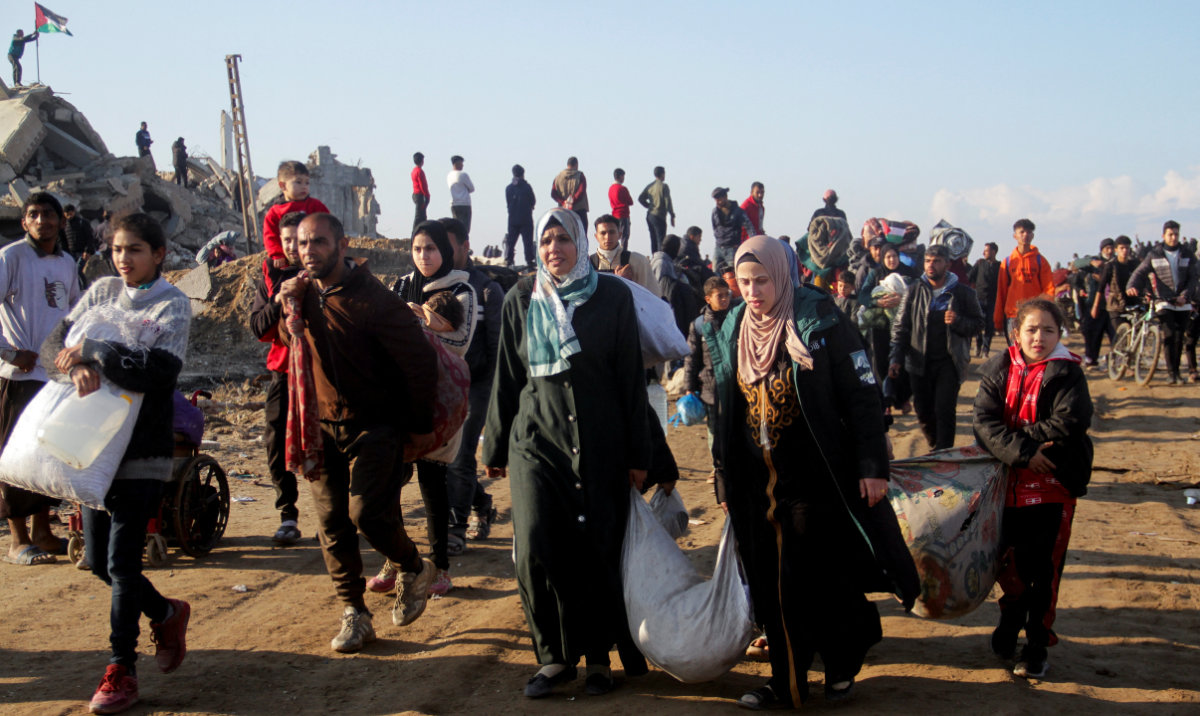BEIRUT: The lawyers of the Beirut port explosion victims and the 17 arrested defendants fear the lawyers of the politicians accused of being involved in the crime would resort to the Court of Cassation after they exhausted their cases before the Court of Appeal.
Tarek Bitar, the judge leading the probe, had resumed his meetings on Wednesday in his office at the Justice Palace after the judiciary defied the pressures to remove him from the case.
Every setback in the investigations delays the indictment and the trials even further.
The horrific blast occurred on Aug. 4, 2020, after 1,750 tons of ammonium nitrate stored at the Beirut port along with seized explosives exploded, killing 220 victims, injuring over 6,500 people, and destroying the Beirut waterfront and its back neighborhoods.
Bitar and his predecessor, Judge Fadi Sawan, accused former PM Hassan Diab and four former ministers, Ali Hassan Khalil, Ghazi Zeaiter, Nohad Machnouk and Youssef Finianos of being involved in the crime and charged them with “a felony of probable intent to murder and a misdemeanor of negligence because they were aware of the presence of the ammonium nitrate, and did not take measures to spare the country such a disaster.”
Director-General of State Security Maj. Gen. Tony Saliba, his counterpart at the General Security Maj. Gen. Abbas Ibrahim and several judges have also been accused of being involved.
Bitar has not yet received the results of the simulation he conducted of the explosion in August. A security source told Arab News that security experts are still reviewing the simulation before drawing up their report and presenting it to the judge.
Bitar is yet to receive the satellite images [from the day of the explosion] that the Russian administration handed over to the Lebanese Foreign Minister Abdallah Bou Habib over a week ago. “The satellite images have been given to experts from the security forces for reviewing,” the source noted.
He downplayed the possibility of these images revealing significant details. “These satellites are always rotating, so they might not have taken any images right before or during the explosion. If these satellites were above the Beirut port following the blast, then these images are worthless to the investigation because what matters is what led to the explosion.”
The security source noted that the Special Tribunal for Lebanon (STL) asked many countries for satellite images when it was investigating the assassination of former PM Rafik Hariri, but none of the satellites had taken images right before or during the crime.
On Thursday, former minister and lawyer Rachid Derbas, representing Diab, submitted formal pleas before Bitar, regarding the jurisdiction of the Judicial Council and the Supreme Council for the Trial of Presidents and Ministers.
A judicial source told Arab News that all the arrests and charges made by Bitar “were based on acts that led to the explosion, and anyone who says otherwise is lying. The investigation does not focus only on the explosion. It is rather manifold; how the ship loaded with ammonium nitrate arrived in Lebanon and all the events that led to the day of the explosion. This investigation is carried out by a single judge, while such crimes usually have an integrated team to expedite things.”
He questioned why Hezbollah is suspicious of the investigation's path and is accusing Bitar of politicizing the case.
The judicial source recalled a speech Hezbollah’s Secretary-General Hassan Nasrallah gave in the wake of the blast, in which he said he will not provide a cover for anyone involved, no matter their sect, especially if they were Shiites, then, later on, started accusing Bitar of politicizing the investigation and targeting specific sects. “Bitar’s investigation is still ongoing and he is summoning everyone he believes the facts point to as being involved. He still has a lot of suspects he needs to question.”
Whenever Bitar takes a step forward, he stumbles over new obstacles. The source wondered: “How come the STL’s verdict did not provoke any offensive stances such as the ones Bitar is facing today?”
The judicial source believed Bitar would not step down, “otherwise, he would be admitting to all the accusations made against him.
“Bitar’s conscience is clear and he is simply doing his duty,” he said, adding: “The judiciary has to shelter Bitar, just as the military court did and imprisoned the journalist who dared to utter offensive words against the military institution.”
The ruling class is trying to evade Bitar by insisting that politicians should be tried before the Supreme Council for the Trial of Presidents and Ministers.
Legal expert and former MP Salah Hanin had previously told Arab News: “The PM and ministers do not have immunity when they commit a criminal offense such as the port explosion crime. It subjects them to ordinary laws and to the same judiciary that exercises its authority over all citizens.”
Hanin cited Article 70 of the Constitution, which stipulates that the parliament has the right to impeach the PM and ministers for high treason or breach of their duties. “This article does not include criminal offenses; they thus must appear before the judiciary.”






























